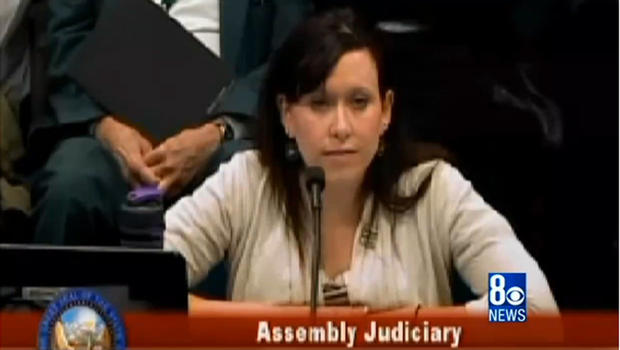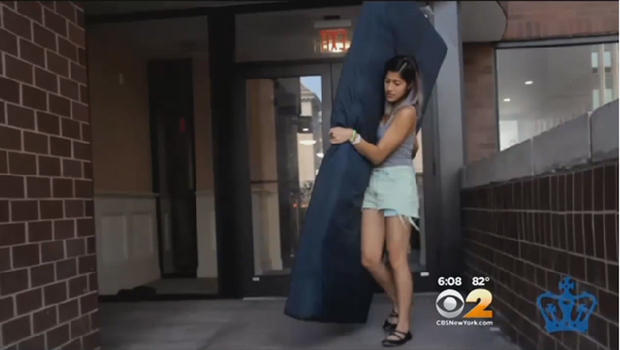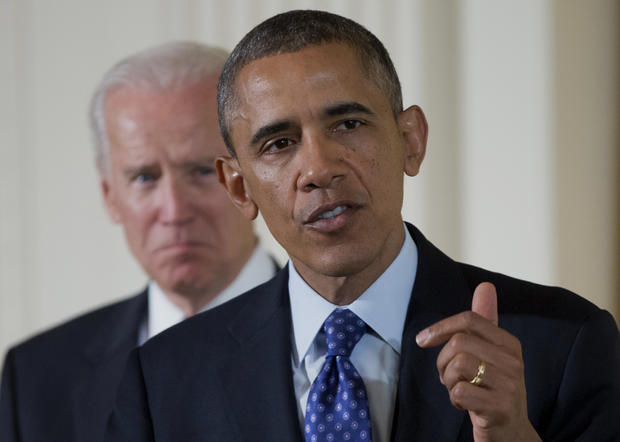Women with guns: Is it a solution to rape on campus?
In the two years since former University of North Carolina, Chapel Hill students Annie Clark and Andrea Pino filed a federal complaint with the U.S. Department of Education's Office for Civil Rights, the case has set off a nationwide movement to take colleges to task for mishandling or ignoring sexual assault allegations.
But another movement, championed by sexual assault victims on the other side of the country, ties the issue to concealed-carry gun rights, and Clark worries it could distract from efforts to fix how colleges handle sexual assault allegations and prevention.
"I think we should be talking about the perpetrators," said Clark, a co-founder of the advocacy group End Rape on Campus, during a recent interview with 48 Hours' Crimesider. "Telling women to carry guns, first of all puts the burden on the woman to prevent this and secondly, it's not a solution."
Campus sexual assault has become a hot-button issue since the Department of Education last year announced investigations into dozens of colleges, and a now-disavowed front-page story in Rolling Stone magazine sought to expose failures to address sexual assault allegations at the University of Virginia. The legislative response in at least 10 states has focused on empowering students to carry weapons, without calling for changes to colleges' prevention and enforcement efforts.
In Nevada, a bill introduced on Feb. 13 has been nicknamed "Amanda's Law," after Amanda Collins, a former University of Nevada, Reno student who was raped in 2007 in a parking lot near the campus police department. Her attacker was eventually convicted for raping three women, one of whom he killed. Collins has testified before several state legislatures, arguing that her assault could have been prevented if she were allowed to have her gun on campus.
"My University is and was a 'gun-free zone,'" Collins said during an interview with 48 Hours' Crimesider. "But that didn't stop my attacker from carrying a gun."
Collins, who was licensed to have a concealed weapon, wasn't carrying the gun because it was forbidden on campus. After her assault, she helped found the group, Women for Concealed Carry, which frames concealed carry as a victims' rights issue.
But the group's director, Katherine Whitney, said it wasn't formed in opposition to other victims' rights groups.
"There seems to be kind of a dichotomy in this discussion where people assume either campus carry should be legalized or college campuses should take steps to reduce campus assault," Whitney said. "It should be both. We need colleges to acknowledge that campus assault happens, and we need administrators to do everything they can to prevent victimization."
The rise of groups connecting concealed carry to sexual assault prevention caught Sandra Park, senior attorney at the American Civil Liberties Union Women's Rights Project, by surprise.
"If we are saying the victims need to have guns so they can protect themselves, we're returning the burden onto the victims to somehow be able to individually fight off the offense," Park said. "The issues of sexual violence are more about how the schools and law enforcement respond to complaints."
The U.S. Department of Education is currently investigating more than 50 colleges nationwide for possible violations of federal law over the handling of sexual violence complaints.
But Elizabeth Hillman, provost and academic dean at the University of California Hastings College of Law, says many universities aren't ready to implement prevention and enforcement strategies.
"I have to say, as a university administrator, we are not well-positioned to deal with the investigation, the prosecution, the law enforcement responses related to sexual assault," Hillman said.
"However, we are in a position to work on education, because that's what we do, educate people," she added.
Hillman, a former Air Force officer, has worked to reduce sexual assault in the armed services. She contends it can be a "tricky" issue for politicians who don't want to be seen as critical of the military.
But colleges are an easier political calculation, she says.
"They finally got another set of institutions to take heat on this, and the political attention has pivoted toward universities," Hillman said.
One political organization that recently embraced the issue is the Leadership Institute, a non-profit that provides training in campaigning and fundraising for young conservatives.
The organization recently posted to YouTube an instructional video on how to run on-campus "Strong Women Fight Back" concealed carry campaigns. The video gives tips for navigating college bureaucracy and running a "highly visible campaign" tied to preventing sexual assault.
"This project will be controversial, so always have a camera ready and be prepared to videotape opposition ... if you catch opposition [to concealed carry] on video, it might even make national headlines," the video notes.
Bryan Bernys the Leadership Institute's Vice President for the Campus Leadership Program, said the organization doesn't have any other initiatives focused on sexual assault. He argues that campuses shouldn't be excluded from laws that allow licensed concealed weapons in other public spaces.
"We're seeing a huge push for this. We've talked to a number of students around the country and most students don't feel there's any other way to prevent (sexual assault)," Bernys said.
Still, arguments by political groups and school administrators aside, the victims of sexual assault -- whether for or against letting women have guns on campus -- take pains to be sensitive to the views of other survivors.
Clark, who began campaigning for stronger policies on sexual assault after she and her friend survived assaults while attending the University of North Carolina Chapel Hill, said the argument for concealed carry lets campus police off the hook, even when it's made by victims.
"Their feelings and beliefs as victims are valid, and I can understand why someone who has been victimized by a person, and not protected by the police, might want to have a weapon, but it shouldn't be their responsibility," Clark said.
Collins struck a similar tone when asked about sexual assault victims who argue against allowing concealed weapons on campus.
"I can certainly respect their position and choice to not carry, but the ultimate goal is to allow women to choose how to protect themselves," Collins said.


